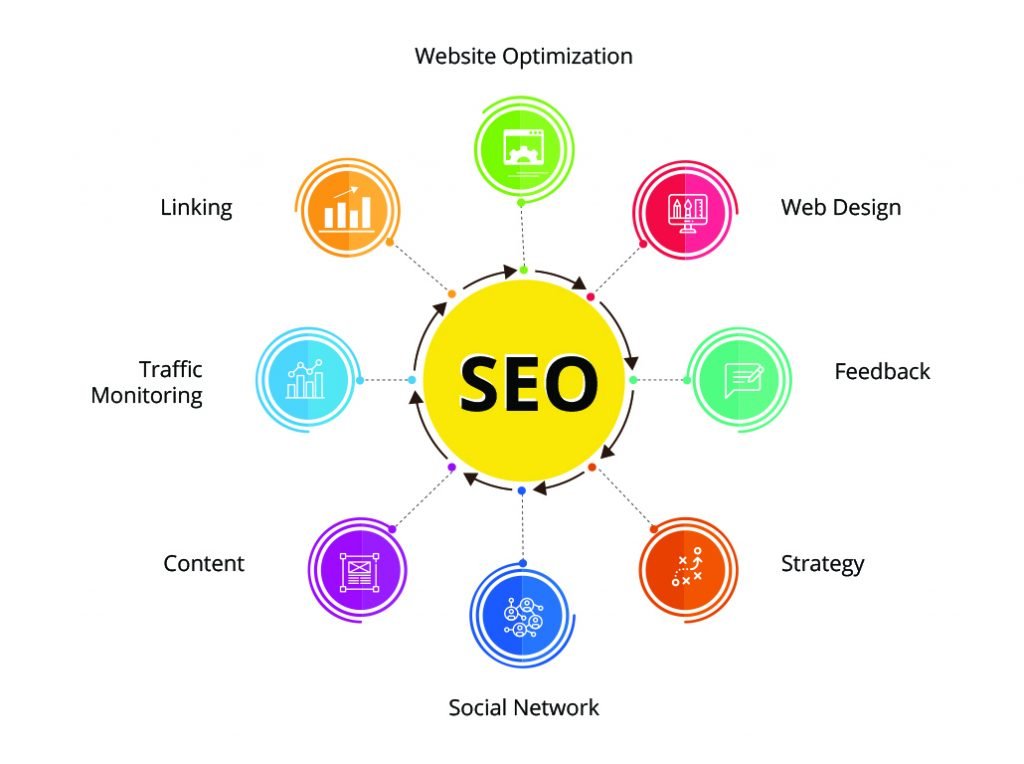
SEO and Its Importance
SEO stands for ‘Search Engine Optimization’, it is important for the success of any online business. It is a set of rules for optimizing the website so thatit can achieve higher rankings in search engines’ organic results. It’s the process of improving the site to increase its visibility when people search for products or services related to business in Google, Bing, and other search engines.
How does SEO work?
Search engines such as Google and Bing use bots to crawl pages on the web, going from site to site, collecting information about those pages and putting them in an index. Think of the index like a giant library where a librarian can pull up a book to help you find exactly what you’re looking for at the time.
Next, algorithms analyse pages in the index, taking into account hundreds of ranking factors or signals, to determine the order pages should appear in the search results for a given query. In library analogy, the librarian has read every single book in the library and can tell you exactly which one will have the answers to your questions.
SEO success factors can be considered proxies for aspects of the user experience. It’s how search bots estimate exactly how well a website or web page can give the searcher what they’re searching for.


Benefits of SEO
SEO Leads to Better User Experience
By providing the audience with relevant information, related photos or videos to support text, easy to navigate web pages or a mobile-friendly website configuration.
This results in more clicks, more leads, better brand recall and higher conversion rates.
SEO Is a Primary Source of Leads
Inbound strategies are the most effective and successful source of leads among Business to Business (B2B), Business to Customer (B2C) and non-profit organizations. Inbound includes search engine optimization, social media, content marketing, referrals and others.
SEO Brings Higher Close Rates
An average of 14.6% close rate is achieved from SEO leads, compared to 1.7% close leads from outbound leads. Reaching out the customers (outbound or cold leads) often results in lower conversation rates.
Whereas SEO leads, where a customer makes the actual research of the product or service, results in higher conversion. These individuals making their research online already have a specific requirement and purpose in mind.
Conclusion
Search Engine Optimization is one of the strategies that will help site ace the competition. SEO refers to the ability of a website to gain quantitative and qualitative website visits through organic search engine results.








